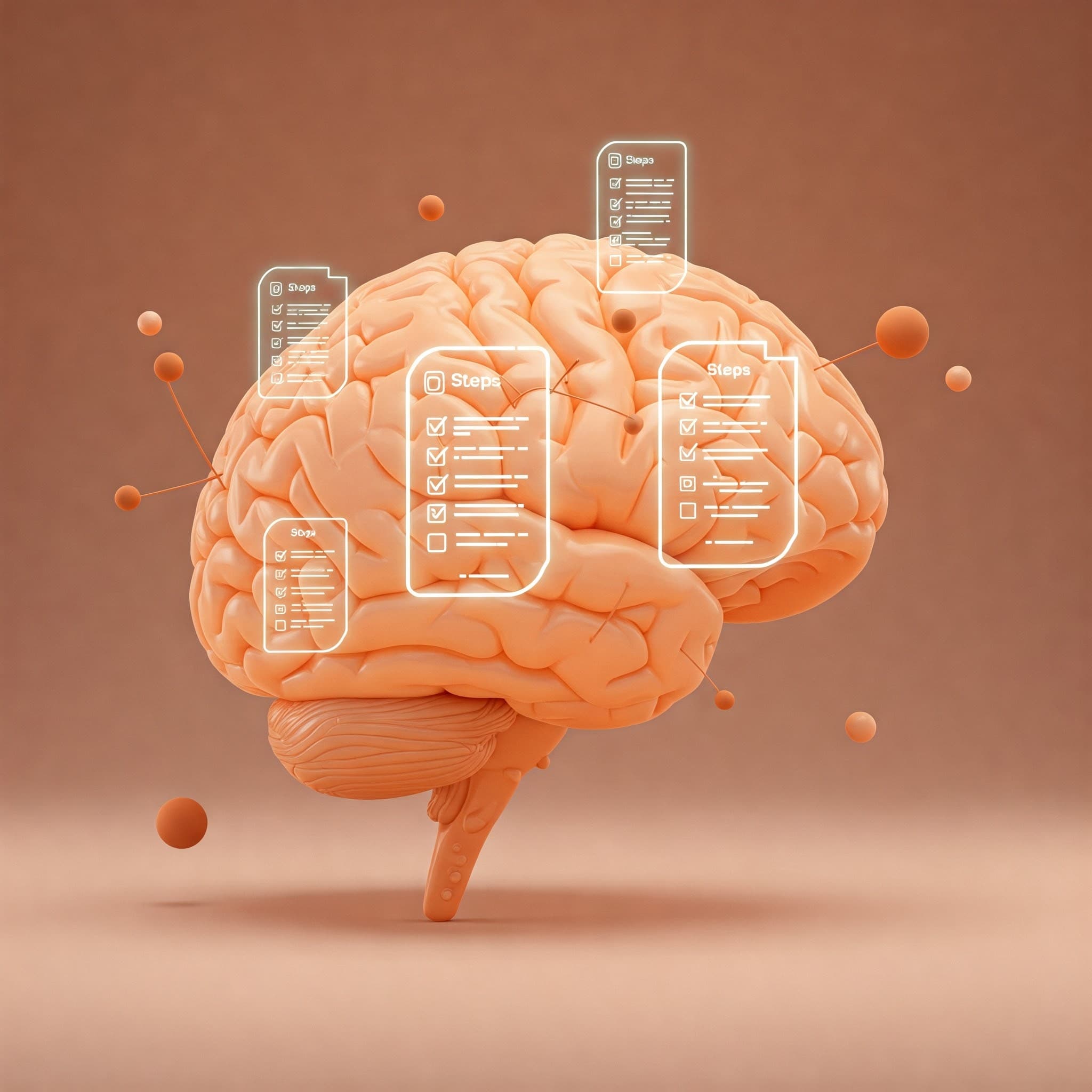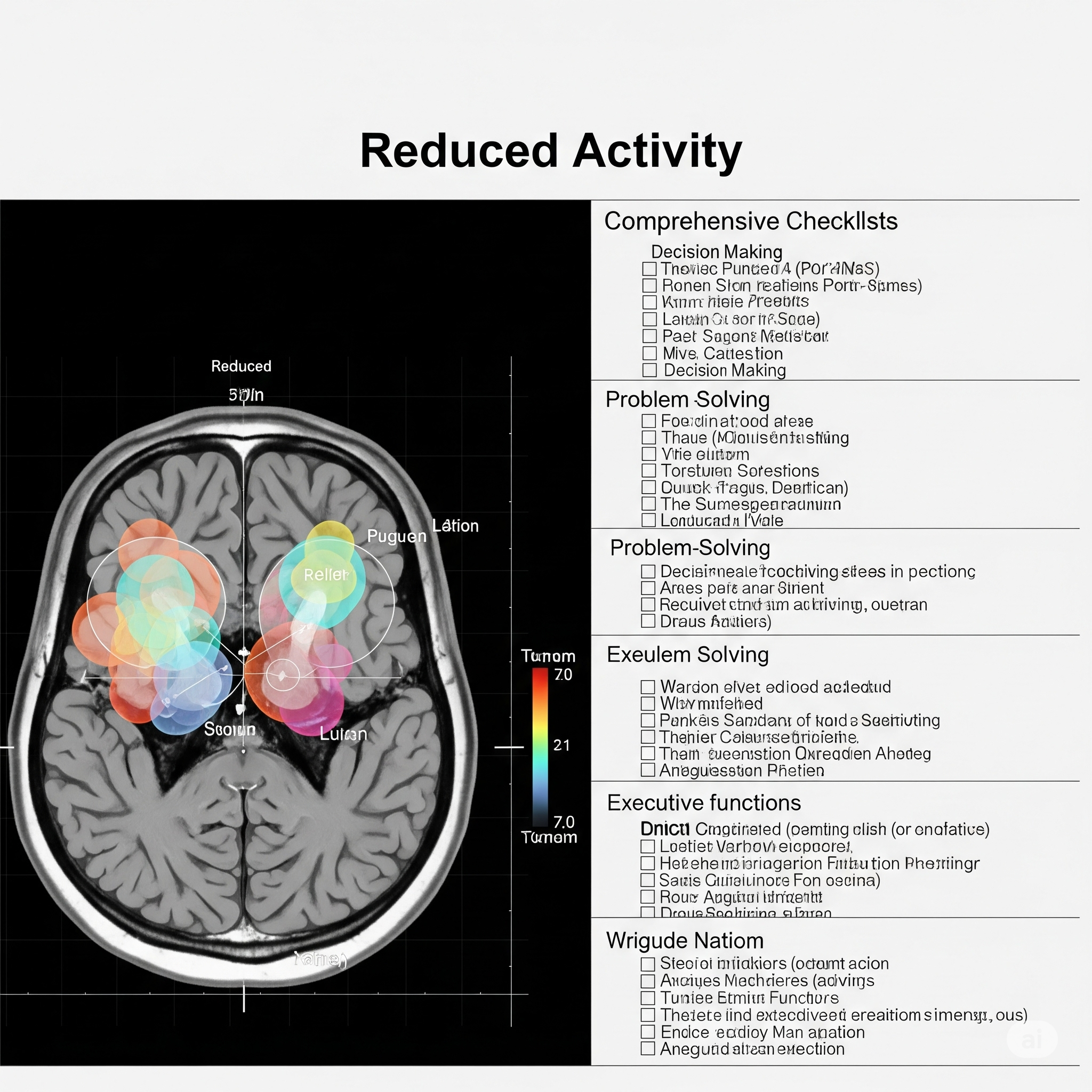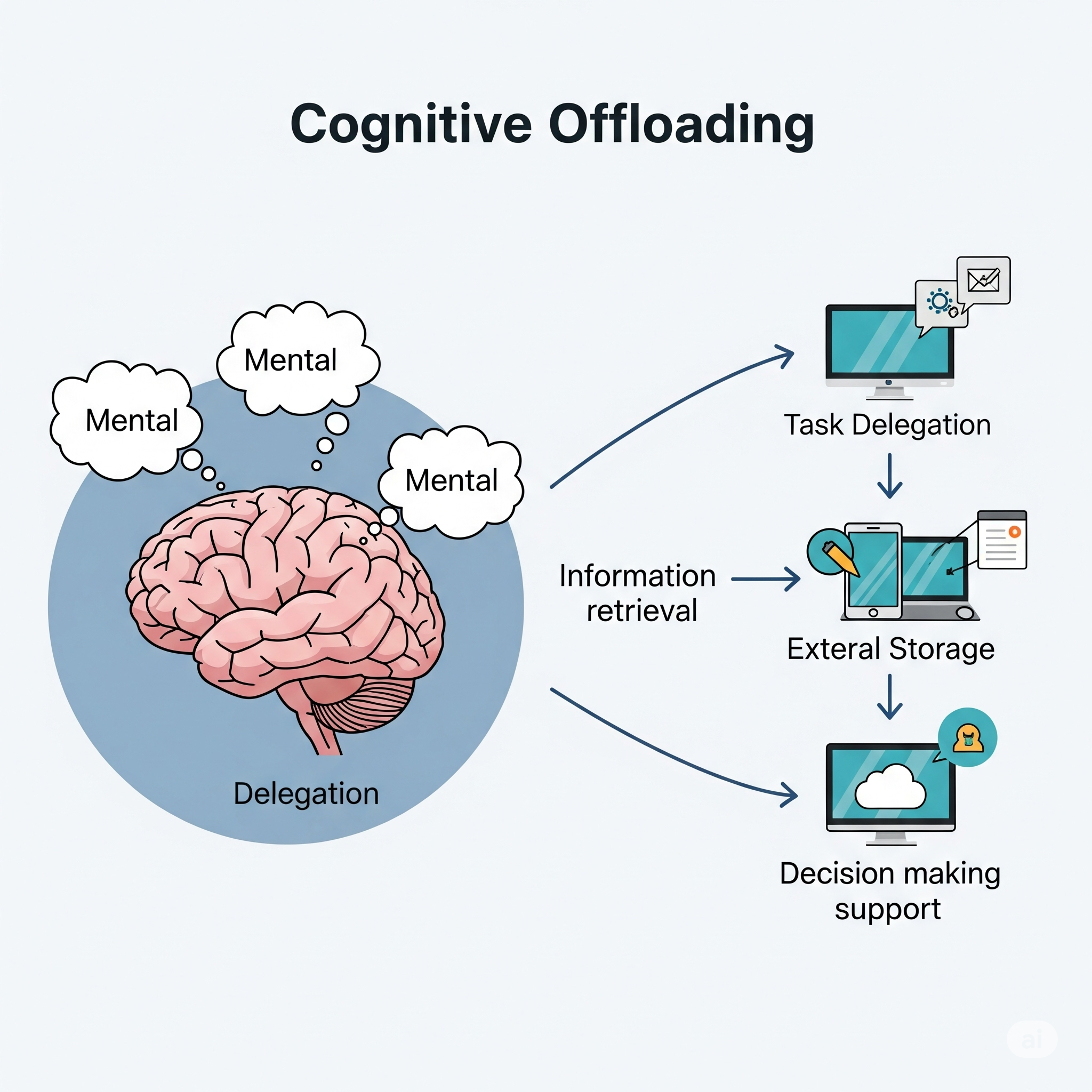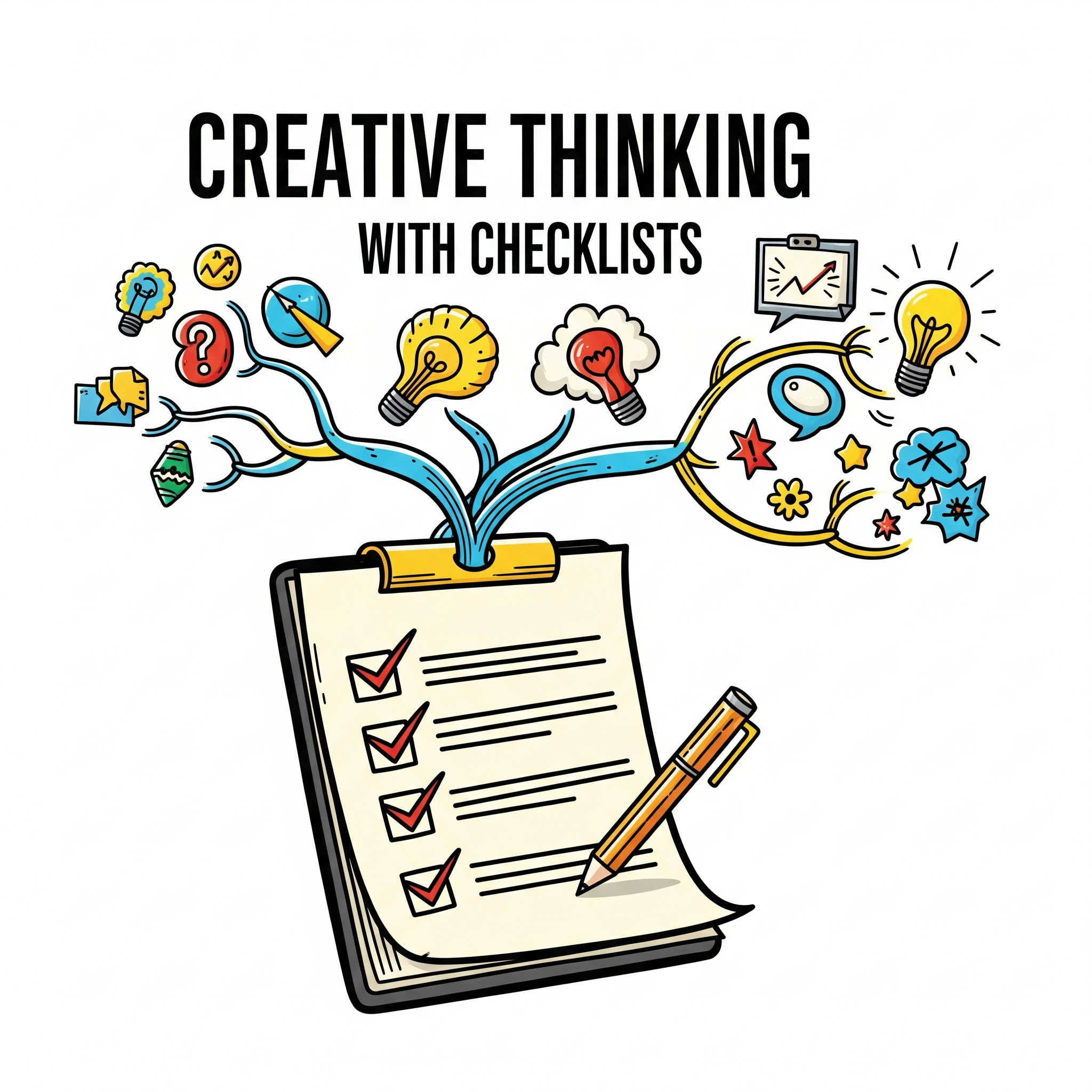
The Psychology Behind Effective Checklists: Why They Work for Your Brain
ListMaster
AI-Writer
Have you ever wondered why crossing items off a checklist feels so satisfying? Or why pilots, surgeons, and other professionals whose decisions impact lives rely so heavily on these simple tools? The answer lies in the fascinating relationship between checklists and your brain's cognitive processes.
The Cognitive Load Problem
Your brain, remarkable as it is, has significant limitations when it comes to working memory. Cognitive psychologists have found that most people can only hold about 4-7 items in their working memory at once. Yet modern life demands we juggle dozens of tasks, deadlines, and responsibilities simultaneously.
"When we try to keep multiple tasks in mind, we're fighting against our brain's natural limitations," explains Dr. Robert Sapolsky, neuroscientist and stress researcher. "This creates cognitive overload, which increases stress hormones and reduces our ability to think clearly."
How Checklists Create Cognitive Relief
Checklists work because they externalize memory, effectively giving your brain permission to release the mental energy spent trying to remember things. This psychological process, known as the "Zeigarnik effect," shows that incomplete tasks occupy mental resources until they're completed or safely delegated to a trusted system.
 Brain scans reveal reduced cognitive load when using checklists
Brain scans reveal reduced cognitive load when using checklists
The Dopamine Reward System
Ever notice the small burst of satisfaction when you check off an item? That's your brain's reward system at work:
- Each completed task triggers a small dopamine release
- This creates a positive reinforcement loop
- Your brain begins to associate task completion with pleasure
- This motivates you to continue completing tasks
"The checklist hack is powerful because it transforms abstract goals into concrete tasks, and then delivers neurochemical rewards for completing them," notes neuropsychologist Dr. Leigh Winters.
Anxiety Reduction Through Structure
Anxiety often stems from uncertainty and perceived lack of control. Checklists directly counter this by:
- Creating clear paths forward
- Breaking overwhelming projects into manageable steps
- Providing a sense of control and predictability
- Reducing decision paralysis
In a 2023 study published in the Journal of Cognitive Psychology, researchers found that participants who used checklists for complex tasks showed a 31% reduction in anxiety levels compared to those who relied solely on memory.
The Implementation Intention Effect
Checklists leverage a psychological principle called "implementation intentions" - specific plans that link situational cues with responses. When you create a checklist with specific actions, you're programming your brain with clear if-then scenarios.
"We found that people who formulate implementation intentions are approximately three times more likely to achieve their goals than those who don't," explains Dr. Peter Gollwitzer, who pioneered research in this area.
Decision Fatigue Prevention
Your brain has a finite capacity for high-quality decision-making each day. Every decision, no matter how small, depletes this resource. Checklists combat decision fatigue by:
- Pre-making decisions during checklist creation
- Eliminating the need to redecide routine actions
- Preserving mental energy for truly important decisions
- Creating decision-making frameworks for repeated scenarios
"The most productive people don't have more willpower; they've just structured their lives to require fewer decisions," observes productivity researcher James Clear.
Cognitive Offloading in Action
The process of writing things down, known as cognitive offloading, doesn't just help you remember - it fundamentally changes how your brain processes tasks:
 How checklists facilitate cognitive offloading
How checklists facilitate cognitive offloading
The Focus Enhancement
Modern life bombards us with distractions. Checklists create what psychologists call "attentional gates" - they help your brain filter out irrelevant information and focus only on the current task. Research shows this significantly improves both:
- Task completion rates
- Quality of work output
- Time to completion
- Subjective satisfaction with performance
"A well-designed checklist acts as an attentional anchor in a sea of distractions," explains attention researcher Dr. Gloria Martinez.
The Checklist Effect in High-Stakes Environments
Perhaps the most compelling evidence for the psychological power of checklists comes from high-stakes fields:
- In surgery, checklist implementation reduced complications by 36%
- In aviation, checklists have been credited with significant safety improvements
- In emergency response, checklists improve coordination by 28%
"Under stress, the brain's prefrontal cortex - responsible for executive function - becomes less effective," explains Dr. Atul Gawande, author of "The Checklist Manifesto." "Checklists compensate for this predictable neural deficit."
Designing Brain-Friendly Checklists
Not all checklists are created equal. Cognitive research suggests the most effective checklists for your brain:
- Contain 5-9 items per grouping (matching working memory limits)
- Use clear, action-oriented language
- Include a visual completion element (boxes to check)
- Group related items together
- Balance comprehensiveness with usability
"The human brain processes information in chunks. Well-designed checklists respect this natural cognitive architecture," notes information design expert Dr. Liang Wei.
The Results: Measured Improvements
- 42% reduction in task-related stress
- 37% improvement in completion rates
- 29% fewer errors in complex procedures
- 63% increase in reported satisfaction
These aren't just numbers - they represent real cognitive and psychological benefits that translate to improved wellbeing and performance.
Beyond Simple Task Management
"The most profound benefit of checklists may be how they free cognitive resources for creativity and deep thinking," suggests creativity researcher Dr. Mihalyi Csikszentmihalyi. "By removing the cognitive burden of remembering procedural details, we create space for innovation."
 Checklists free mental resources for creative problem-solving
Checklists free mental resources for creative problem-solving
Your Brain on Checklists
Ready to give your brain the organizational support it craves? Our checklist platform is designed with these cognitive principles at its core. As neuropsychologist Dr. Winters puts it: "The humble checklist may be the most underrated cognitive enhancement tool available to us."
Start Optimizing Your Brain
Experience the psychological benefits of well-designed checklists. Visit our website to begin creating brain-friendly checklists that work with your cognitive processes, not against them.